I am deeply unhappy to report that retail theft has come for my neighborhood CVS. The urbanist angle is that we should be able to expect a baseline of, for lack of a better word, order in our cities and neighborhoods and public places. Good urbanism depends on functional basic institutions. People should live daily life in peace.
As I walked into my local CVS on May 29th, I saw, for the first time, a security guard posted up front, and locked cabinets in many parts of the store. The one pictured up top might not have been new, I cannot say for sure, but I do not remember laundry detergent or allergy medicine or makeup being locked up before.
The sky is not falling and I am not panicking. I still think my neighborhood is safe and feel fortunate to live here. But I am profoundly disappointed. This is the feeling NIMBYs worry about, friends. We should reflect on it as urbanists.
Weeks ago I marveled at items in locked cabinets at the Target in Redmond near Seattle, glad it was so alien to me as a NoVA resident. But I had started wondering. And I had recently begun to have bittersweet feelings about my local shopping plaza, because of the litter that is apparently no one’s responsibility. A walkable grocery store we regularly use is a major reason we chose to live here. We appreciate the combination of a CVS, Aldi, and hidden gem pizza joint. And I like interacting with my neighbors in the grocery store, in the mundane, pleasant way that people do.
I feel flashes of frustration because I know there are individuals out there, visible on Twitter, who brush off pervasive retail theft as something a good liberal urbanist should tolerate. I could not disagree more. Scenes like this polarize people against anything they associate with urbanity. And more importantly, petty theft does have a real human cost, borne mostly by fairly vulnerable people like retail workers who have to watch it happen. I would not blame essential workers, who were lionized as heroes in 2020, for feeling disrespected and forgotten.
I asked a CVS employee chatting with the security guard about the locked cases: ‘This seems new. Has theft gone up recently?’ As she answered my questions, she seemed to appreciate the invitation to talk about the problem, which is her problem.
The employee said she had started working at the store about eight months prior, and though there was always some theft here and there, she saw a big uptick after her first two months. Her shift starts at 3:30 in the afternoon, around the time local schools let out. And roughly 3:50 p.m. is primetime for kids, from middle schoolers to high schoolers, to descend on the store and take what they want. Students or young adults often come in groups to pick the store over, she said. “Regular people” — adults — steal too. Clearly the issue skews young.
A member of my city’s council said the locked cabinets may be a new corporate policy, but also that they worry as a parent about a group of thieves flooding into a store they are in with their children, creating an unsafe situation.
‘But it is a pretty small percentage of people, right?’ Actually the employee asserted that 30 or 40 percent of people who come into the store steal. My wife and I agree the real figure is probably lower, but the employee’s estimate seems directionally correct. She mentioned the empty shelves throughout the store, which I did notice. I had seen some bare shelves before, and the sign stipulating one student at a time, but not thought much of them. And now my local CVS has started to lock stuff up. How sad.
‘Is it organized retail theft? Are people reselling stuff?’ Maybe in a few instances like perfume and beauty items, but not necessarily, she said. Students steal candy and soda. People load up a bag of stuff and just walk out. Or they leave it on a shelf when they notice the security guard. Or they walk up to the store with a bag, see the guard, and decide not to go in. The employee seemed almost relieved to just talk about it.
The guard is a deterrent, he has been helpful, she said, but of course there is little employees can do. They are not allowed to intervene. They might take pictures of thieves and send them to a group chat with coworkers, but concrete action would require filing a police report, a hassle that no one wants to deal with. I can understand why. I think our city’s police department is fine, but would they be able to help, really? I doubt that is what cops should spend their time on.
I have more questions than answers, and more frustration than I want to admit. I do not want to overreact. The worst part is that my five-year-old daughter was with me. I should have shielded her more from the conversation. She could not believe that people steal stuff. She asked: Do people not understand that they are not supposed to take things? I explained to her that some people do the wrong thing; that is part of life. She also heard the CVS employee talking about the wheels being stolen off of someone’s car nearby, which struck me as more random, but my daughter could not believe that either. I told her a few times, “Don’t worry, we are safe. We are safe.” I think we are, but I have lost some of the defiant pride I feel in my neighborhood. I do not think less of my neighbors. I do think less of my neighborhood, which stings.
Many of my neighbors have limited incomes. If the bottom falls out and they lose their local pharmacy, staffed by pharmacists they can speak with in languages other than English and Spanish, it might be more than a mild inconvenience for them.
If there are non-draconian policies that deter retail theft, I do not know what they are. I am not sure there is a solution, narrowly defined. It would seem ridiculous to post a cop in every CVS, or liquor store for that matter. The stealing students are apparently attending school. Frankly, I would not want my kids to be their classmates. Maybe you find that statement objectionable, but why should it be? Is “don’t steal stuff” too high a bar for polite society? In the simplest terms, there should be a proportional consequence for stealing. I am not a “carceral urbanist,” I do not want these kids’ stupid decisions to ruin their lives. I am just a regular person, and a dad, wondering for the first time if I should leave my e-bike on the sidewalk outside the Aldi near the CVS, immobilized with a lock but easy enough to carry away.
To the extend this rant has a point, some of us devoted to urbanism and invested in American cities’ success should be figuring out how to create communities where a young woman working at CVS does not have to watch nervously while a group of imposing young men treat her workplace like they own it, without paying a cent.
I certainly do not think there are pure policy solutions to these sorts of issues. Maybe these kids’ family situations are bad, or totally fine. Maybe the thieves of all ages were “raised right.” The theft is intolerable, whether or not it leads into something more serious. I cannot accept this behavior as normal or reasonable. Urbanists should not.
In our search for solutions, or at least for a shared understanding of underlying causes, we should be able to rationally discuss such problems, and call a spade a spade.
captured the nuance well in his reflection on visiting Seattle:[L]ots of places I go shopping and driving around are more dangerous than Seattle. But perception is reality, and while homelessness and the public disorder that can go along with it is not the same thing as crime, it is unreasonable and self-defeating to insist that such problems are essentially inherent in the city itself. That’s an argument for people who don’t like and don’t care about the city to make, not for people who do.
Thanks to my 363 subscribers, especially my 10 paid subscribers. If you enjoy this blog or want to work together, especially on my concept for a real estate financing platform, please contact lucagattonicelli@substack.com. I would love to write about a reader-suggested topic. Check out YIMBYs of Northern Virginia, the grassroots pro-housing organization I founded.

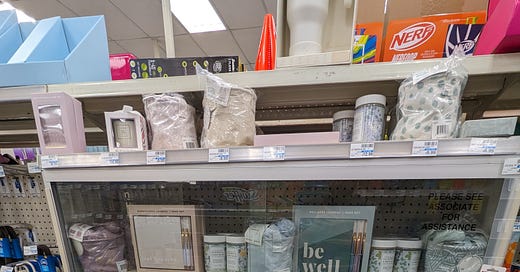




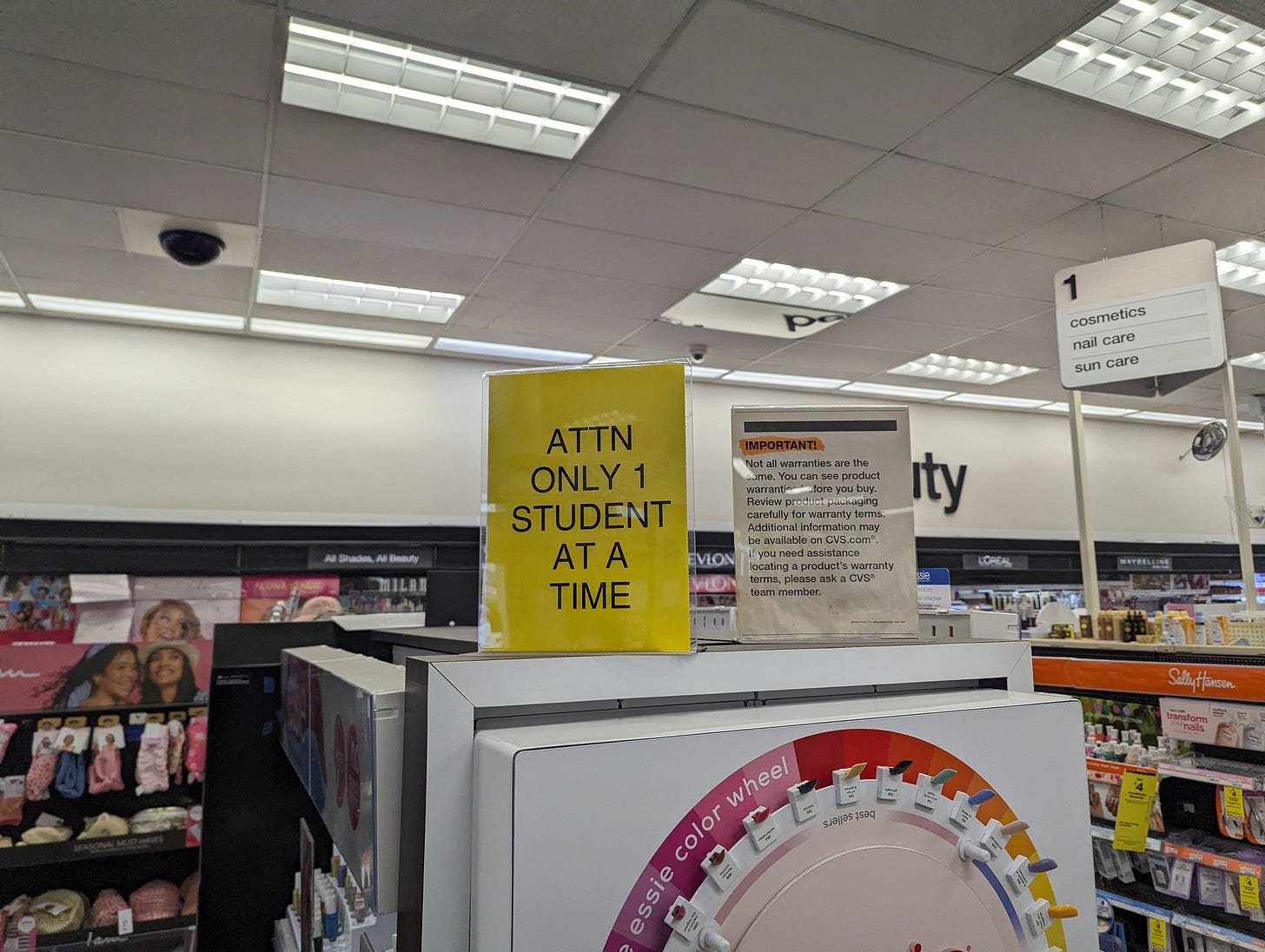
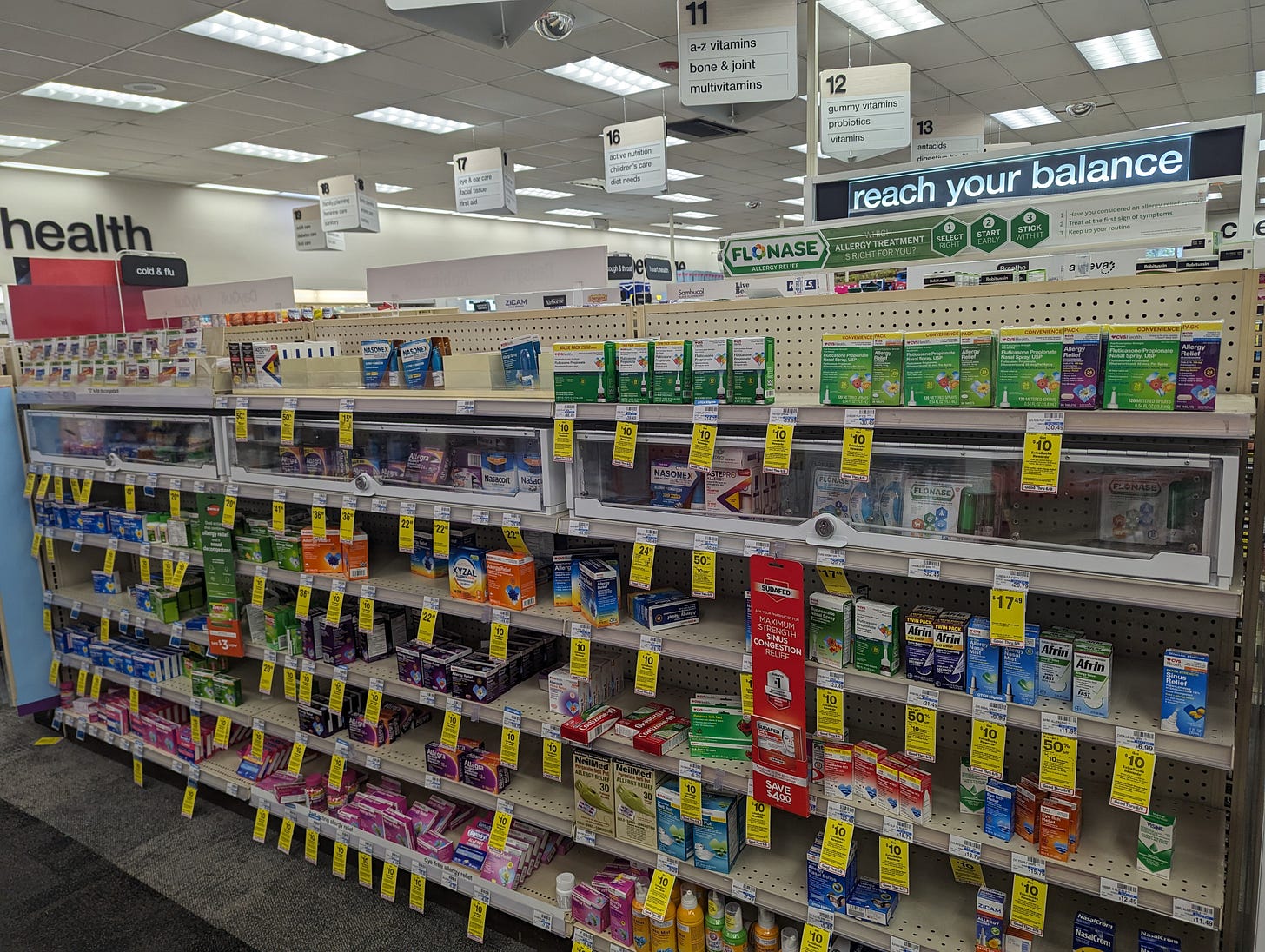
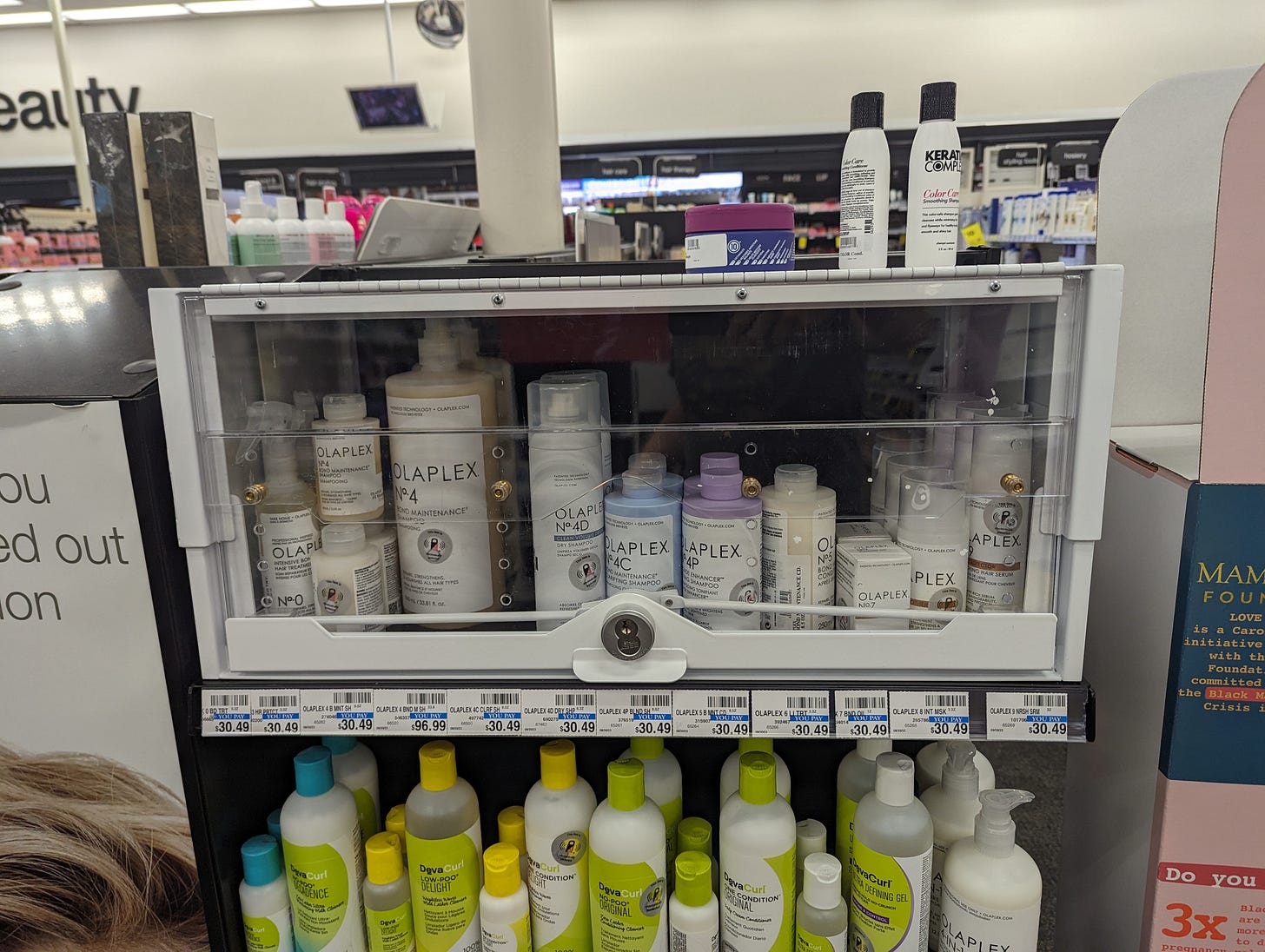
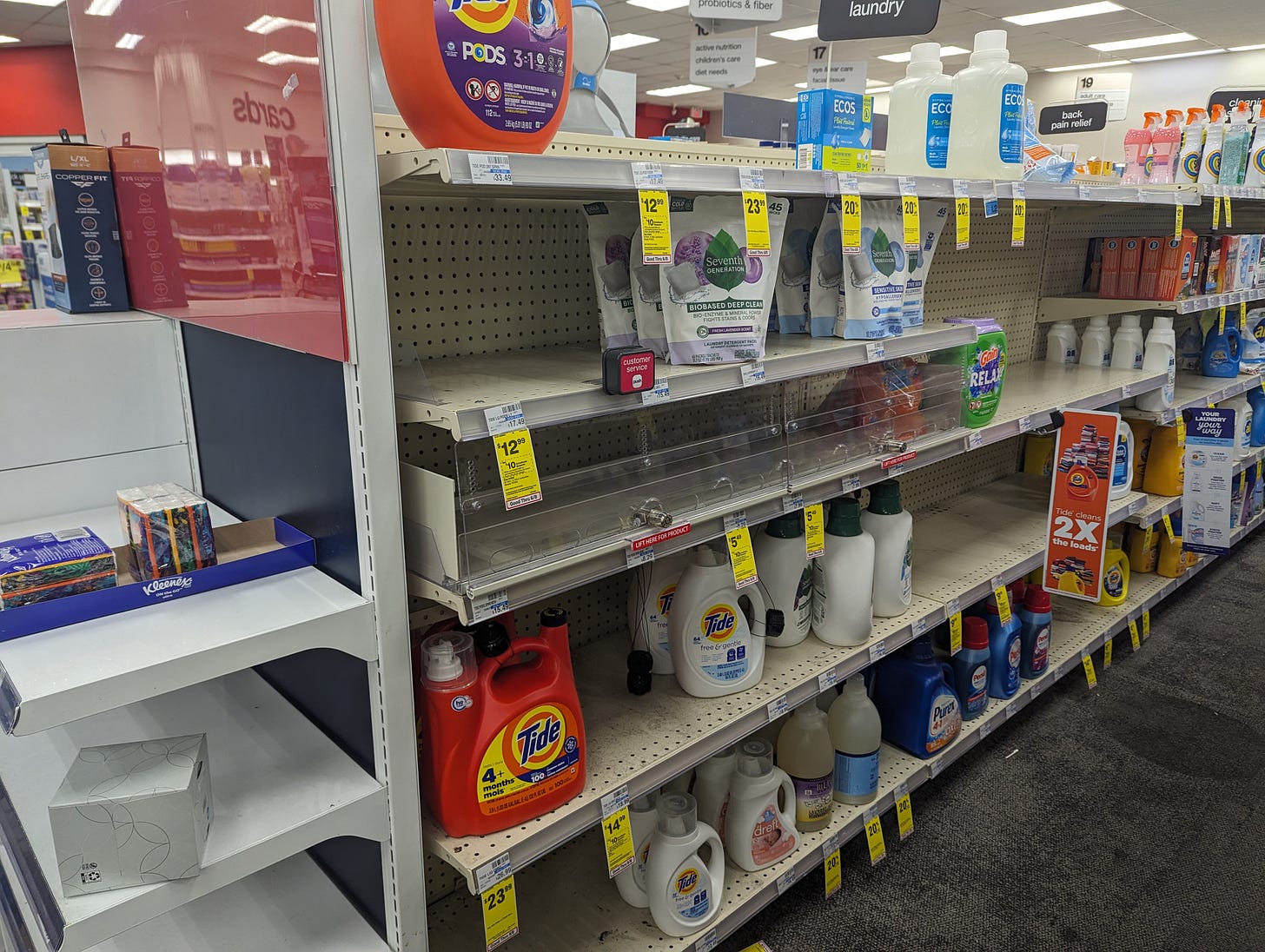
Apparently it's been a big problem and Lowes and Home Depot for a while and the people stealing know that the employees are not allowed to confront them. We have some grocery stores that can't keep items on the shelves especially meat because it gets stolen immediately. On a positive note, I started a community garden in a low income area and for the first year or so, people would pull up plants and children would purposely break things. The community center had been in a state of disrepair for a long time. We fixed up some of the things like the basketball goal and the kids broke them right away. We fixed them again and kept coming and spent time there especially while the kids were there playing. We talked to them and made relationships with them. It sounds hokey but it was like as soon as they felt confident that we were staying and the place would be maintained, they stopped breaking things and now they seem to really enjoy and use the space.
I decided to keep the line about police priorities in part because it troubles me to think that police have to disincentivize what almost feels like a breakdown of basic civilization. It also makes me question whether society can just carry on as normal. That is an extreme way of putting it, I hope folks understand what I am trying to say.